Gear Info
Which is the Best Tape to Use in a Roland Echo?
Tape: The Never-Ending Quest… Is At An End.
All tape is not equal. Many (most?) tapes available online do not perform well in Roland echoes… Based on our experience working on hundreds of tape echoes and trying many tapes, this is the answer to the question: Which is the best tape loop for my Roland (or Korg!) tape echo?
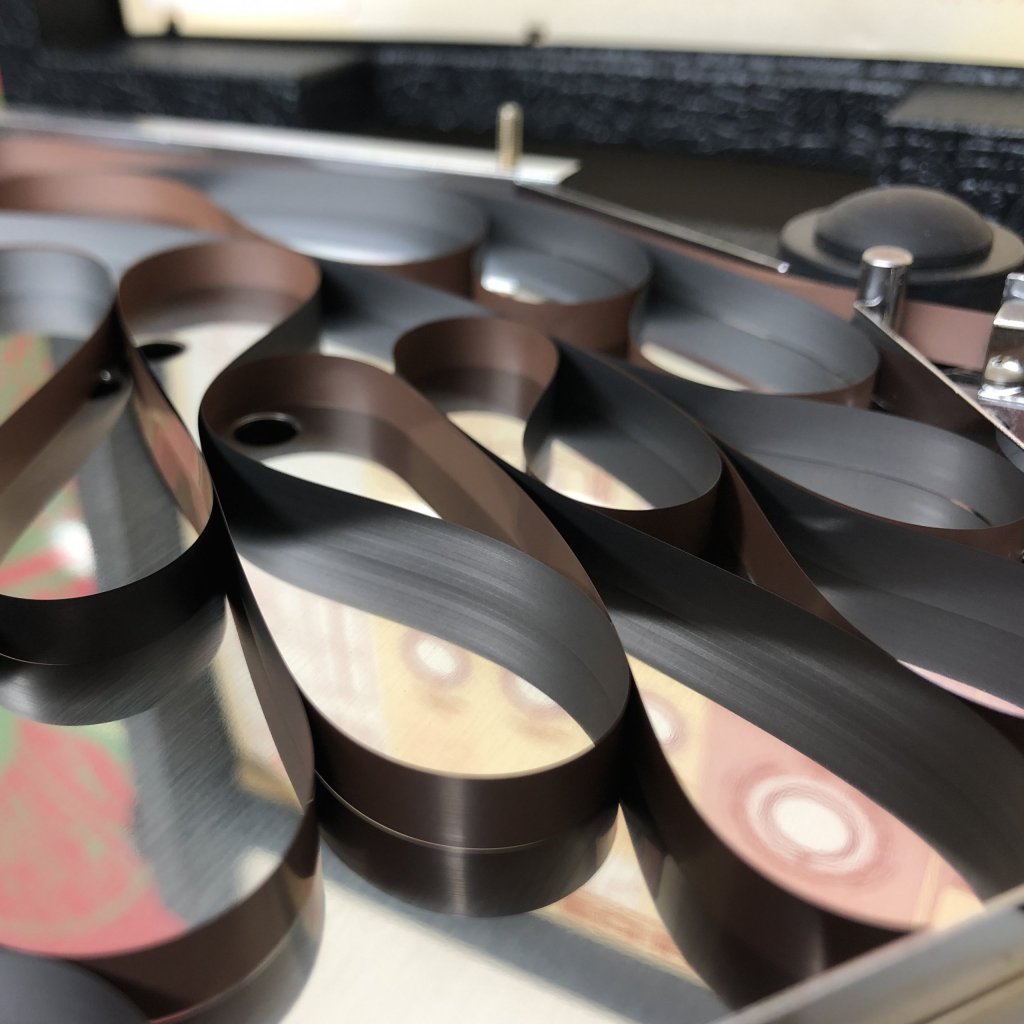
IMPORTANT: All tape is not equal. One of the conditions of our guarantee on all the tape echoes we sell is that you only use the loops we recommend. The only loops that we recommend/warranty are our own, made from unused/dry-stored stock of the formulation supplied to Roland in Japan.
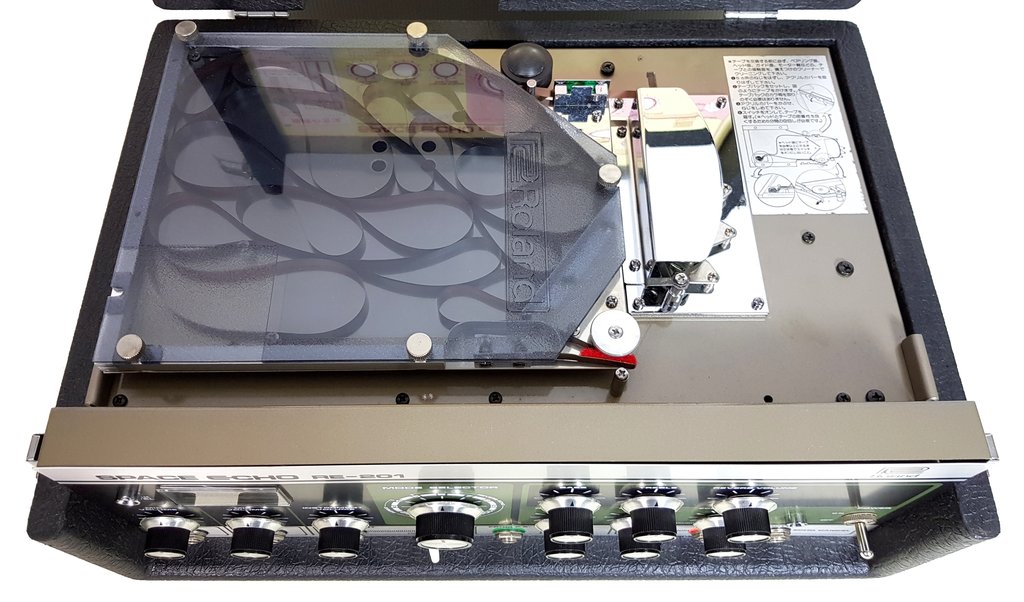
Repeat Offender
A couple of years ago, we suddenly had around a dozen of our machines stop working 2-5 weeks after we sent them out. We weren’t selling as many back then and this occurred over the course of about 3 months. The cost of return shipping, re-servicing and re-sending hit us hard. By a process of elimination we narrowed the culprit down to sub-standard tape loops – they worked fine for a few weeks before they shed their coating, clogging everything up. At the time we were supplied by a well-known online tape echo supplier; I contacted them to explain that they appeared to have a bad batch of tape, but received a reply that they’d had no other complaints. Needless to say, that was the end of our association. Fortunately, Dr Huw was able to recommend a good source of loops and we were soon up and running again.
BASF LGR-50 for Roland Echoes?
This is not our only caveat regarding tape loops – many online ‘experts’ (including another European supplier whose loops also caused us great trouble) will assert that BASF LGR-50 is the best tape to use in a Space Echo. LGR-50 is a broadcast quality formulation and does sound very good, however the tape is much thicker than original Roland tape, and we have experienced problems with loops made using LGR-50 (it is possible for some LGR-50 loops to work well in a Space Echo, but we neither recommend it nor does our warranty cover its use). It will also require your machine to be recalibrated to run reliably and sound as it should (which in turn may mean other loops will not perform as well).
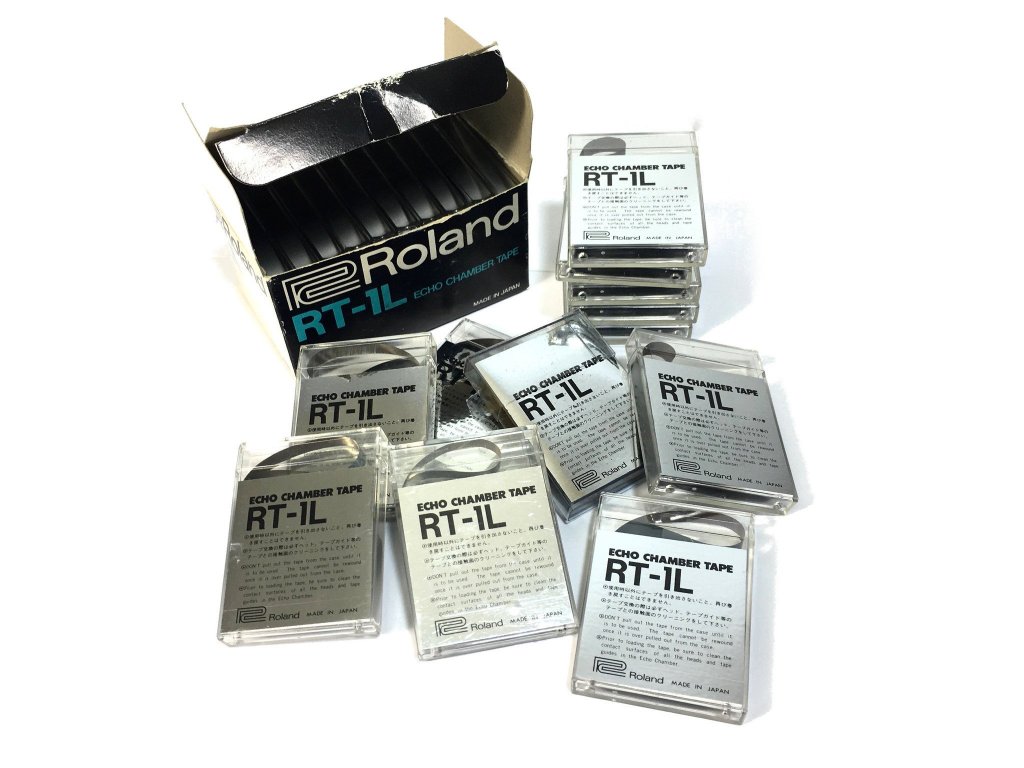
Roland RT-1L
We also sell original NOS Roland RT-1L tapes, when we can find stock, and they can sound great, but we do not guarantee our machines if RT-1L tapes are used. This may seem odd, but tape stock is very susceptible to atmospheric conditions – unless it is stored in a cool dry stable environment, it can degrade over time. Roland loops can be well over 40 years old and we cannot be sure how well they have been stored and therefore cannot guarantee their performance. We’ve also recently opened one to find a vast splice gap that would not pass our quality control, so they’re a gamble (we only use our new loops in our own machines if that helps you decide).
What tape did Roland use?
This is a question that until recently remained unanswered: the individuals who may have known are in many cases no longer with us. Tony asked the CEO of Roland, Jun-Ichi Miki (who had started his career on the RE-201 assembly line) but he replied that Roland no longer hold that information. An interesting fact that came out of that meeting (when we were part of the Boss Cause & Effects exhibition in Sept 2017) was that Roland do not even know for sure who designed the RE-201. So the quest continued.
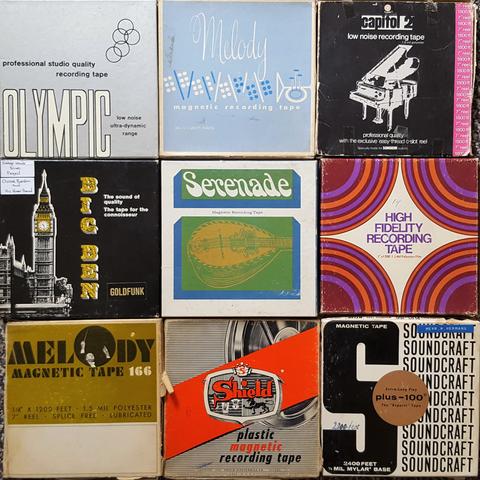
A Spool And His Money…
For some time, we’d blindly bought batches of assorted vintage reels in the hope of finding something that matched the Roland RT-1L in appearance, but it soon became apparent that we were in the realm of needles in haystacks. We persevered: Dr Huw felt certain he knew which manufacturer supplied Roland and from there we began a process of elimination, scouring the manufacturer’s spec sheets and narrowing it down to several possible contenders.
Tony eventually sourced a mixture of used and unused dry-stored reels in the USA, some of which matched one formulation we wanted to examine. We ordered and crossed our fingers. When the reels landed, the tape was a perfect match, and some reels were found to be unused. We now had the formulation (this has since been confirmed by a source in Japan) but we really wanted stock from Japan, as supplied to Roland. Tony had been advised by another loop manufacturer that he had acquired all the remaining unused stock some time ago. However we continued our quest, undaunted by such bold claims. Eventually our dogged persistence paid off when we discovered a significant quantity of unused, dry-stored tape in bulk packaging (rather than on regular reels). We are 99% certain that this is exactly the same stock as supplied to Roland for their RT-1L Space Echo loops.
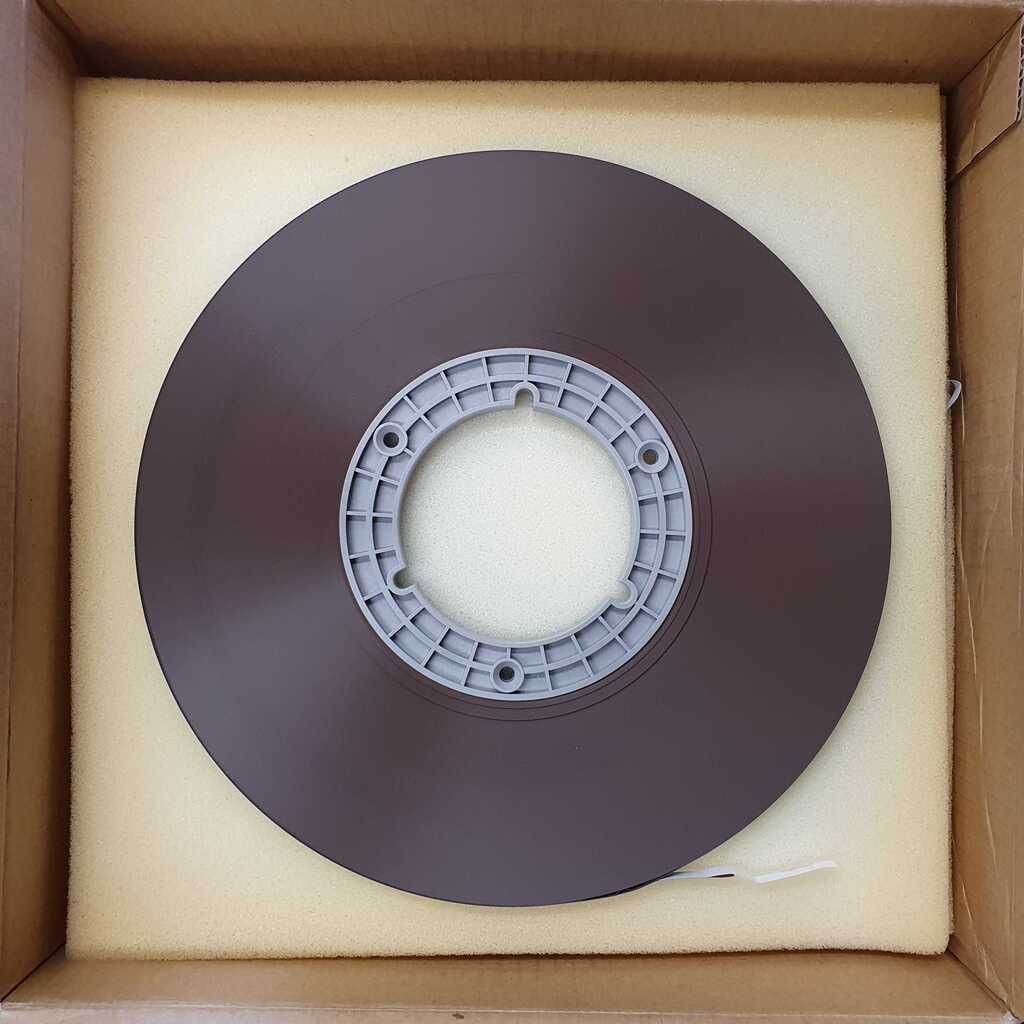
After extensive testing, we can confirm that our loops are as close to original RT-1L tapes as it’s possible to get today, but we also feel that without absolute concrete confirmation from Roland themselves it is correct to leave the remaining 1% uncertainty. We consider this supply of unused stock to be almost priceless and it is dry-stored (with special moisture absorbers) in three separate locations to mitigate any chance of it all being lost at once. Given where it was sourced, we believe it was originally destined for Roland (or another Japanese tape echo manufacturer). The tape works as a drop-in replacement for our machines without the need for further calibration or rebiasing. In our listening tests we’ve found it often exceeds the performance of original RT-1L tapes (which can be of uncertain quality).
[UPDATE: We published the formula on our blog – we’ll add all the info to this page in due course, but for you now can head there for the big reveal!]
The Splice Of Life
The final piece of the puzzle, and one many loop suppliers get very wrong indeed, is the splice. Many suppliers use thick splicing tape which causes the tape to drag excessively as the splice passes over the heads. If the splice tape is old, the splice will gradually come apart, slowly depositing adhesive gunk on the heads and guides with ultimately disastrous results. Max has spent considerable time experimenting to get the right splicing tape and we have now trained up our newest member of the team, Ollie, as our in-house loop-maker extraordinaire. We’ve been using these new loops exclusively for some years now and fit them as standard in all Soundgas machines. They are available to purchase now in limited quantities on the site.
==========
Thanks for reading. This post is one of a series on Roland tape echoes that we are compiling into an online resource for tape delay fans and users. Other instalments include tips and tricks to get the best out of your machine, talking about reliability of tape echoes, how to choose the right tape delay, care and maintenance of your tape echo – find them all here.
More Roland Resources
from around the site:
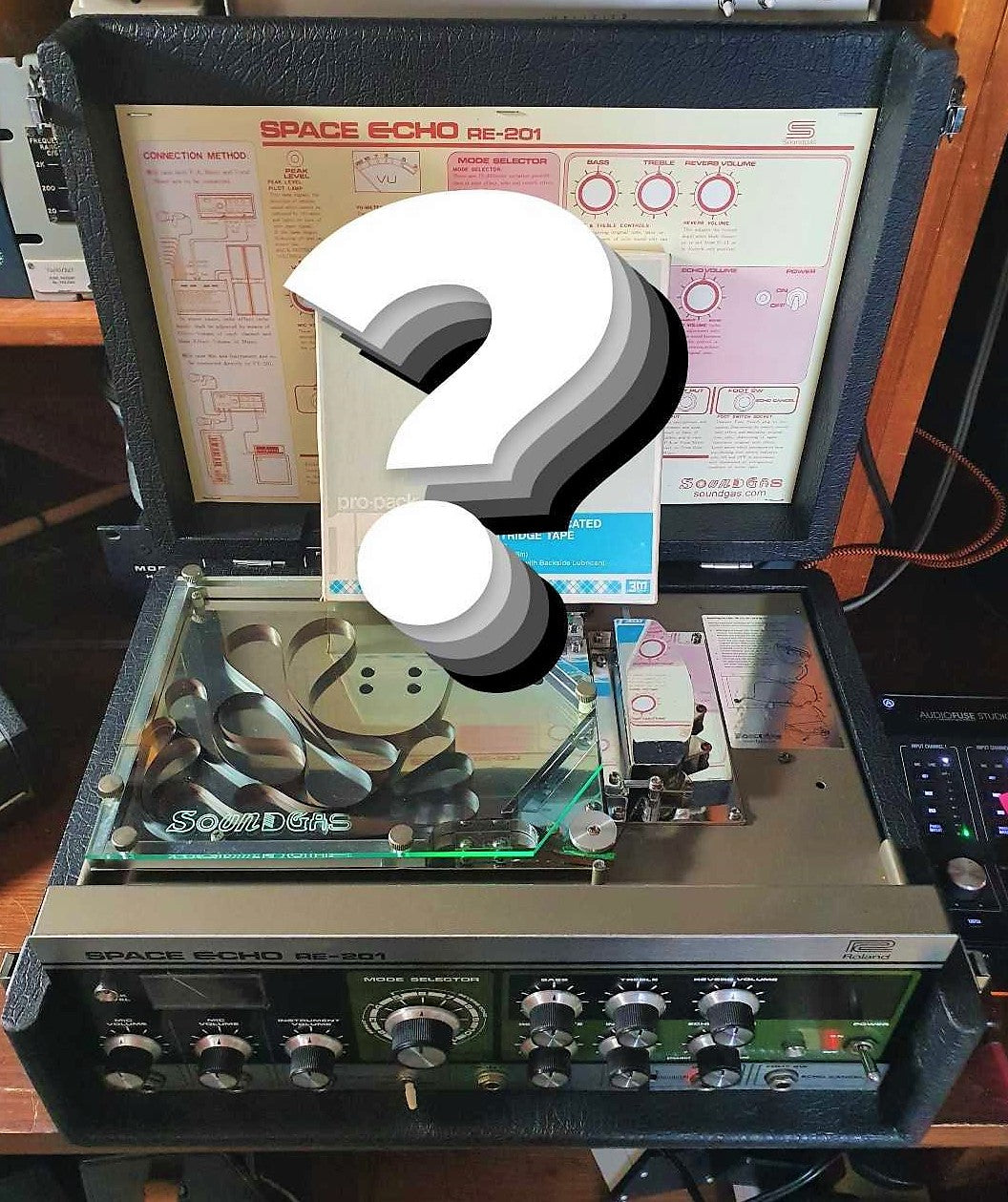
Gear Info
Revealed: The Formula Used By Roland For Tape Echo Loops
The final chapter in our quest to find out what tape to use in our Roland (and other) tape echoes. Spoiler alert: we reveal what the...

How to Change the Tape Loop on a Roland Space Echo RE-201
Info & video showing you how to change the tape loop on a Roland Space Echo RE-201.
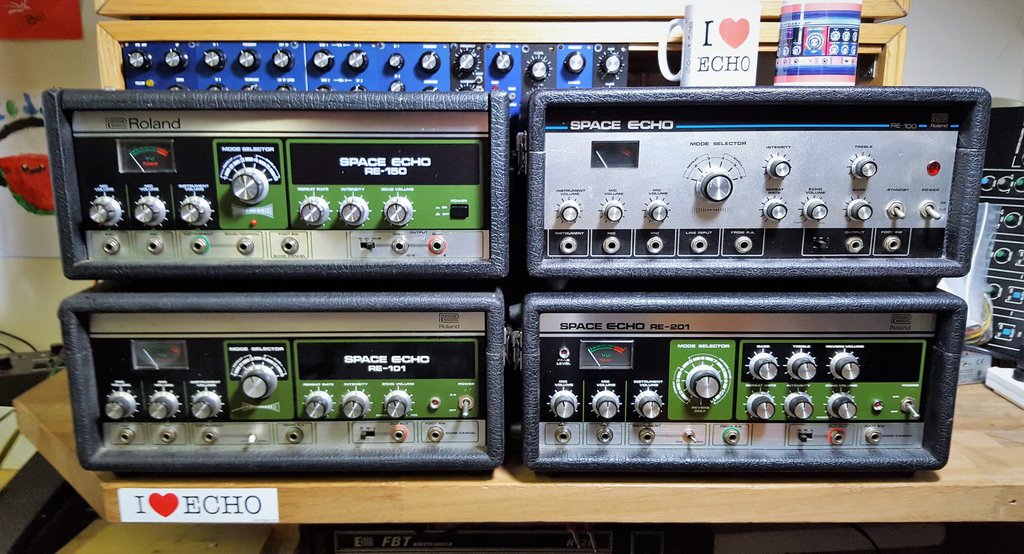
Are Roland Tape Echoes Reliable?
(Spoiler: Yes, but...) We often get asked if Roland Space and Chorus Echoes are reliable: a perfectly reasonable question, given that they're 30 to 40 (or...
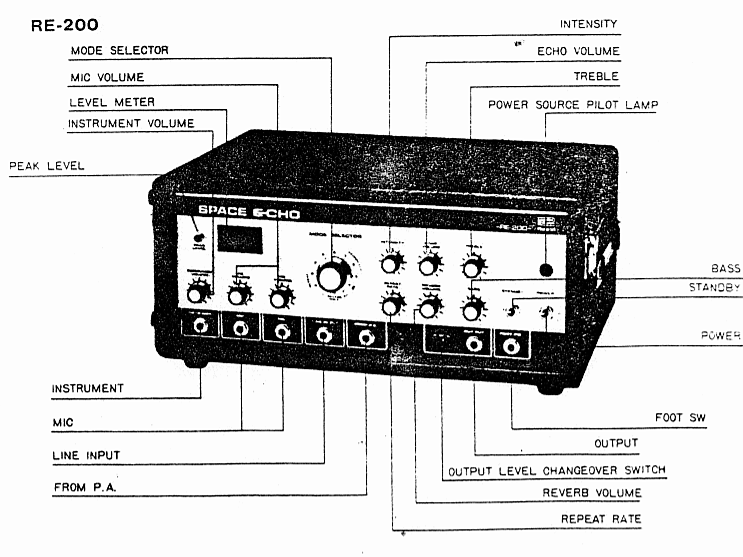
Roland Tape Echo Operator’s Manuals
Links below for manuals for all models of Roland tape echo available to use and download.
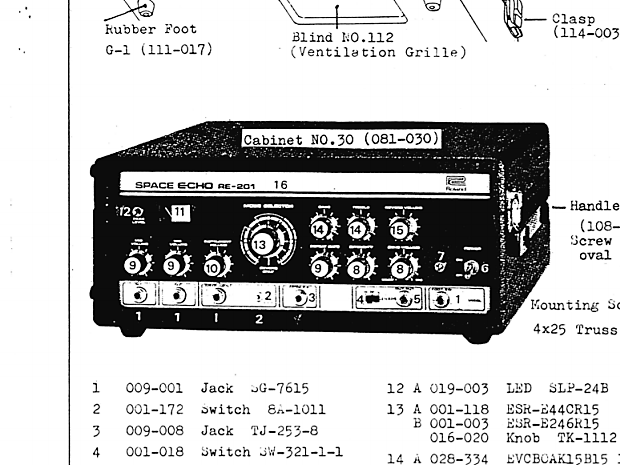
Roland Tape Echo Service Manuals
Links below for service manuals for all models of Roland Tape Echo - available to use and download.

Roland Tape Echo Tips, Tricks & Tales
Some of the nuggets of wisdom we've picked up as we've overhauled, tested & sold hundreds of tape echoes, as well as using them in our...

Which is the Best Tape to Use in a Roland Echo?
All tape is not equal. Many (most?) tapes available online do not perform well in Roland echoes... Based on our experience working on hundreds of tape...
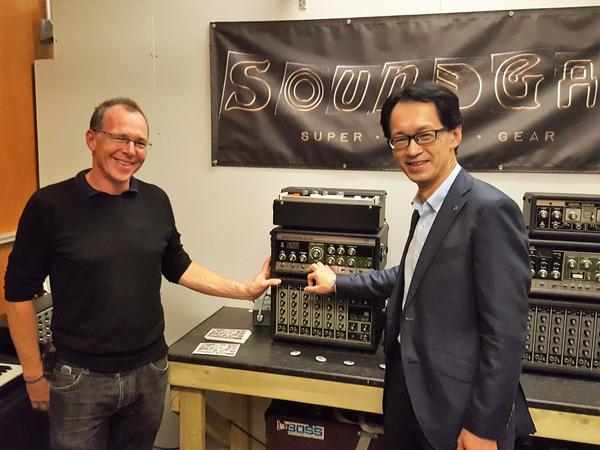
Events
Gear History
When Soundgas met Roland
The story of how we sold Space Echoes to Roland, our trip to London to bring the vintage gear noise to the Boss exhibition launch and...

Roland Tape Echo
Here are our Roland Space Echo resources: we have been obsessed with the sound of these fabulous machines for decades and have more collective experience restoring...

What’s the Maximum Delay Time of a Roland Space Echo?
How slow can a Space Echo go? How long is the longest repeat? We dig into the variations in design, effects of age, & there's more...
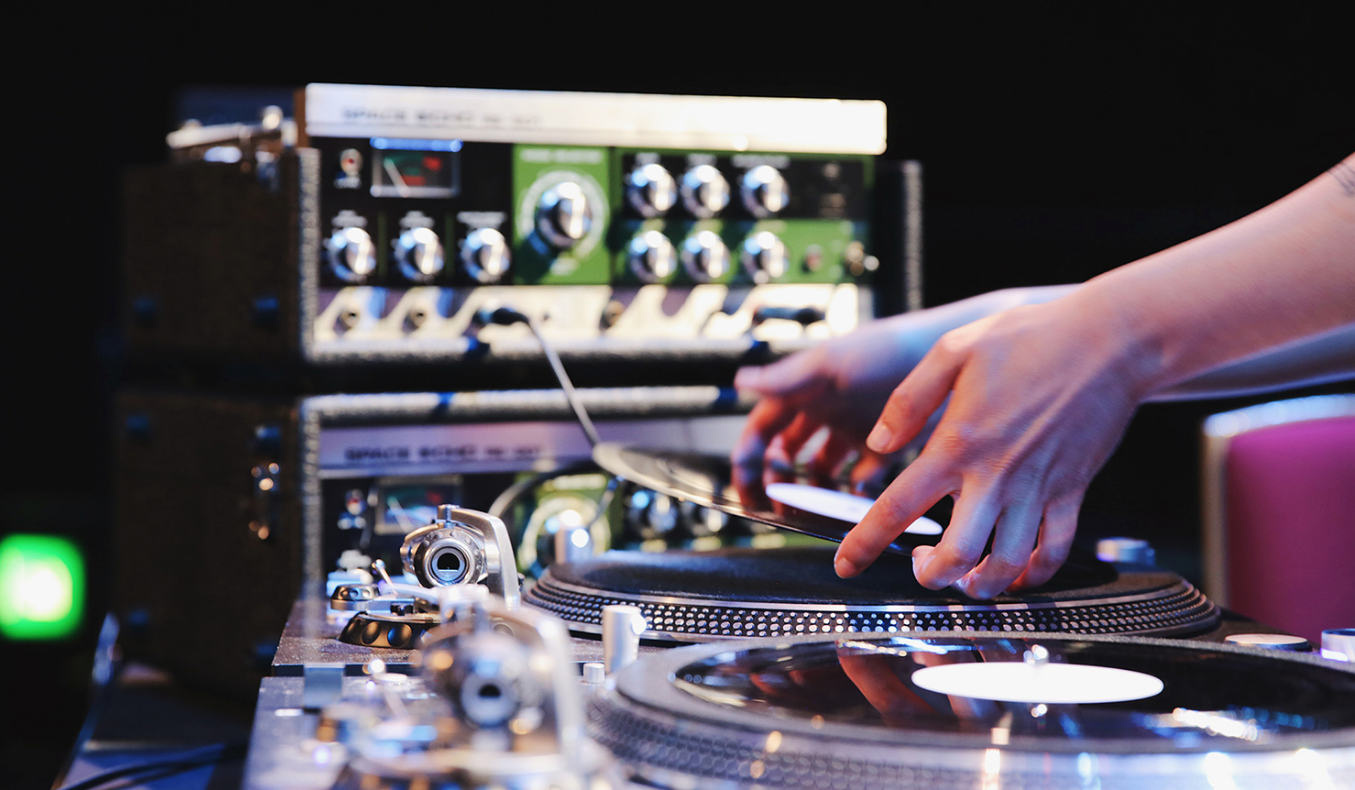
Gear feature
Soundgas News
Daphne Oram’s ‘Still Point’ – BBC Proms 2018
We were asked to supply six Roland RE-201 Space Echoes for the first full performance of Daphne Oram's "Still Point" as part of the BBC Proms'...

Korg Stage Echo or Roland Space Echo?
This page follows on from our introduction to Korg Stage Echoes and also our Roland echo pages. It will help you decide between which Roland or...
